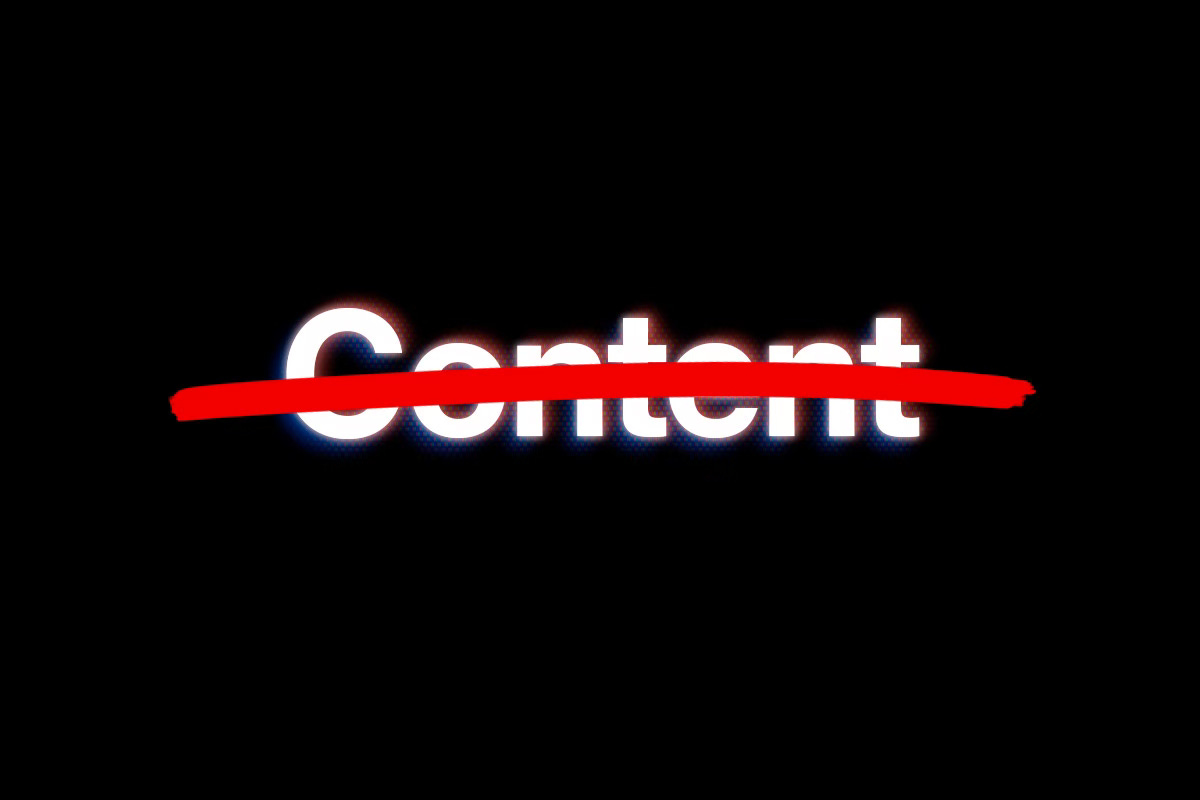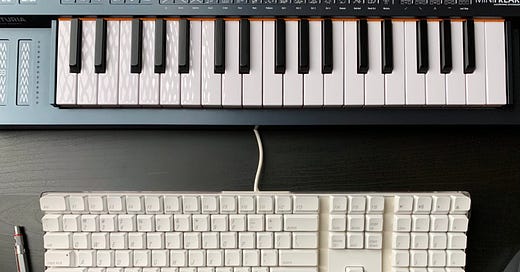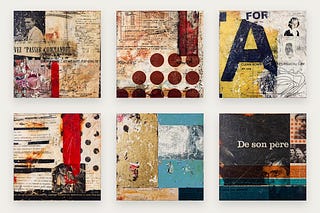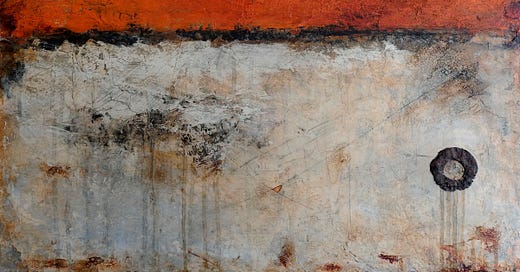

Discover more from Iterations
I’ve been thinking about something for a while and I’m not sure whether or not it’ll land, but I’d like to try stringing together a few ideas. I think it’s time for us to embrace being self-centered, but not in the way that you might think. Typically, when we refer to someone as “self-centered” it’s not a compliment. It often refers to someone who is egotistical and only thinks about themselves or whose only concerns are their own wants, needs, or even interests. But I think there are ways we can reframe the idea of being self-centered as a positive instead of a negative.
Before we do that, I think it’s important to define what we mean by self. Webster’s calls the self “an individual's typical character or behavior” or “the union of elements (such as body, emotions, thoughts, and sensations) that constitute the individuality and identity of a person.” My wife Adrianne has a background in sociology — including the area of social psychology known as symbolic interactionism, which focuses on how people create and interpret meaning through language and other symbols — so I asked her about the definition of self. She said that our sense of self develops through social interactions and by interpreting the reactions of others. She noted that social scientists have been writing about and discussing “self” for decades, and that while on a broad scale Webster’s is more or less accurate, many theorize that there are different kinds of self. I asked her for an example and she told me that some write about an “autobiographical self,” which refers to someone’s sense of self over time. She explained how that’s interesting because it suggests that the self is not fixed and unchanging, but fluid, which allows the self (us) to show up in different ways at different times and in different contexts throughout our lives.
As creatives (or makers, if you prefer that), our self can be said to drive or at least influence our unique vision or voice, which is what sets us apart from everyone else who does something similar to what we do. If you’re a painter, you see the world in a specific way and you use light, color, texture, and composition to express that point of view — and that expression is singular to you because it’s emerging from and filtered through your lived experiences. Rembrandt and deKooning may have used similar materials and techniques, but the way they used them couldn’t be more different because of who they were and how they saw and experienced the world. Sure, there may also be differences in talent or skill, but I had a professor in college who used to say that making art requires the ability to see and that talent without vision is useless.
Our uniqueness is our superpower, but lately it feels like some of our uniqueness is getting lost (or maybe “eroded” is a better way to say it) by the hustle culture around creativity and trying to crack the code of getting eyes and ears on what we do. Every change to the algorithm or updated AI model or new celebrity podcast can leave us feeling like better doesn’t matter as much as more. The problem is that there are only so many hours in the day and you can’t possibly put all of the thought and care and purpose and intent into just making more. I think that people who are playing a volume or numbers game are trying to appeal to a large common denominator — and because of that, they potentially risk losing what makes them unique, rather than focusing on better and connecting with a smaller audience who might appreciate them more because of it.
And of course there are exceptions, right? Casey Neistat famously uploaded 800 daily videos for his vlog, which required a staggering amount of effort and focus. I love a lot of what Casey has done and I have a ton respect for him, but I think he was also incredibly lucky that his unique thing happened to appeal to a massive audience. All of his work could just as easily have fallen on deaf ears like it does for so many of us. Not only that — there’s a very real human cost to always being focused on putting out more and more stuff. Casey even made a video talking about the toll that creating all of that daily content (his word) took on him. “What am I?” he asks to the camera. “What’s left? What’s just for me?” What can get lost in the hustle is the iterative and often personal process of making — the human part, if you will — which for me is the most compelling part. It’s why I love watching documentaries and buying DVDs with a lot of behind-the-scenes features and bonus materials. Seeing work take shape through obstacles and decisions is much more exciting and inspiring for me than just seeing the end product. Process Driven isn’t just the name of my show, it’s what I am.
A recent YouTube survey said that 65% of Gen Z refer to themselves as “digital content creators.” What a terrible way to think of yourself. There’s no expertise implied there. All you’re doing is filling a hole. There’s no purpose or intent other than to get eyeballs, or to get ears, or to get clicks. There’s a saying that goes “if everything is art, then nothing is art” and when content is both everything and nothing at the same time, Scorsese and some random knucklehead on TikTok are in the same bucket and it just becomes noise. “I’m a content creator.” What does that even mean? “So you dance and lip-sync on TikTok?” “Oh no no no — that’s not what I do.” Well, that’s content, so how am I supposed to know that? The problem is when I hear the word content, I automatically picture the most base-level, inane, ridiculous, time-wasting material I can think of. I think of something that has no purpose other than to pause me for a moment before I swipe, click, or scroll to the next thing. There’s no value in noise like that for the end user. We can do better, right? We have a responsibility to do better, don’t we? I think we do.
Look, all of this stuff is personal to me and I know it may feel a bit acute to be on the receiving end of it, but I’ve just grown intolerant with the whole hustle culture and the idea that more equals better. Instead, why not put the focus back on that singular voice that makes you, well, you? Put your self, your humanity, your personhood into everything you make and claim it because that’s what we really want to see. In the long term, I think you’ll be much happier about what you make.
I hope this landed for you. If you’d like to talk about it, hit reply, leave a comment, or email me at talkback@jefferysaddoris.com.
I would appreciate it if you would please share this iteration with a friend or two and if you’re not yet subscribed, maybe you could do that as well.
Thanks for reading.

















That is exactly why I left Instagram and FB (never been on TikTok), because I caught myself posting things which weren’t me or only to feed the monster called algorithm. Substack is different for me in that way, but the risk of let’s called it over-sharing (especially in Notes) is here too! Thank you for your thoughts on this. Very insightful as always.
I really appreciate your perspective on this. I’ve been putting out a substack post weekly for a year and a half or so. I started it as a way to share my photography without social media, and maybe being a little more brave with showing work that means something to me rather than what is “safe” and will do well on instagram. Now I find myself in similar patters trying to post regularly and wondering what the metrics will be when I have new ideas. It makes me sick and I think I’m going to step back and just start creating for myself for a while. I think your post has given me the extra push I need. I love the idea of sharing my work but I wish I could do it without having to hear what people thing sometimes. Thanks!